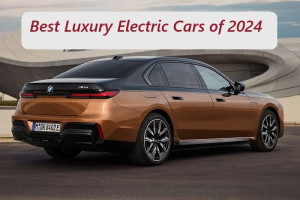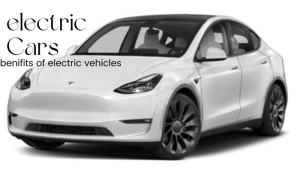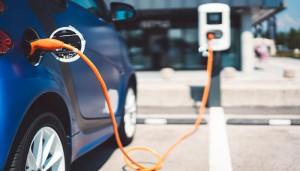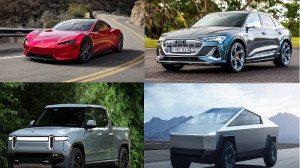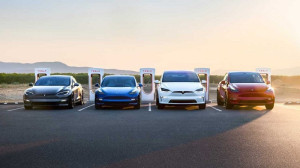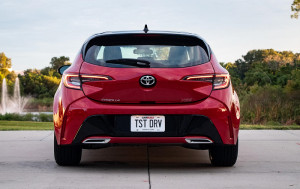The Pros and Cons of Owning an Electric Car
Explore the world of electric cars with our in-depth analysis of the pros and cons. From the low running costs, environmental benefits, and simplicity of electric engines to the potential drawbacks like high initial costs, range anxiety, infrastructure challenges, and cold weather performance.

Introduction:
Many people are now considering electric vehicles due to concerns about greenhouse gas emissions, rising gasoline prices, and the fragility of oil supplies. According to the KPMG Canada survey released in March, nearly one in three respondents (30%) said they still regret not purchasing an electric vehicle. Three in five people said it was time to buy an electric car, and more than half said they would never repurchase a patrol car.
Automotive companies and governments are working to encourage an increase in electric vehicle fleets. The federal government's climate change plan calls for 20% of light commercial vehicles sold to be zero-emission vehicles by 2026, with a target of 60% by 2030 and 100% by 2035. The City of Ottawa will extend its zero-emission vehicle (ZEV) incentive program and raise $547 million over four years in its April budget to support the purchase of more electric vehicle models.
What exactly is an electric car? As you might have guessed, an electric car is a vehicle that runs solely on electricity rather than a gasoline or diesel engine like traditional cars. Modern electric vehicles use electric motors powered by batteries or fuel cells. When these batteries or cells are powered on, they provide power to the vehicle's engine and spin the wheels. However, anyone considering purchasing an electric car should first weigh the following pros and cons:
Pros:
- Low running cost
- Environment friendly
- Less complicated engines
- Tranquiller and quite
- Lower maintenance costs

Low running cost:
For owners of electric vehicles, gas station excursions need to be updated. When an electric car's batteries get low, they need to be recharged. You may accomplish this at home or while out and about by plugging in and connecting your car's batteries to the mains using a standard wall-mounted connection. The electric car's battery pack will absorb and store electricity once it is plugged in, recharging its supplies and making it operational. Many owners of electric cars construct a specialized charging station at home in addition to just connecting their vehicles to the power source. The cost of the charger and installation for a personal charging station should be around $1,000.
In other words, the total cost of the charger will be around $544 if you and your car match the grant's requirements, but this may vary from nation to nation. But, indeed, does that only represent the price of having your charging port installed? What is the actual cost of refueling an electric vehicle? Kilowatt hours (kWh) are used to measure the battery capacity of electric cars. This may be used to calculate the cost of charging an electric vehicle from empty to full. Therefore, multiply the battery size by the cost of power per kWh to get the approximate cost of ultimately setting up your electric car. We'll calculate the price, for illustration purposes, of overnight charging a typical entry-level electric vehicle with a 40 kWh battery.
40 (the amount of the battery in kWh) multiplied by 23 cents (the price of power at that time of day) equals $9.2. As you can see, charging a typical entry-level electric car entirely at home for a whole night should cost around $9.2. It goes without saying that it is a far more enticing price than you may be used to paying at your neighborhood roadside repair station.

Environment friendly:
The continuous combustion of fossil fuels is the primary source of carbon emissions in Ireland. The primary sources of carbon emissions and the resulting air pollution are gas boilers and the combustion engines found in classic cars. The engines in electric cars hardly produce any exhaust emissions. We could anticipate a considerable decrease in air pollution if a sizable portion of the population switched to driving electric vehicles, especially in large towns and cities with thousands of automobiles. Unfortunately, there are still some emissions from electric vehicles. Fossil fuels are often burned to create the electricity needed to charge the battery and operate the car.
Therefore, even though the vehicle doesn't emit emissions, the electricity that runs it does. It is important to remember that this would be fine if the car's electricity had been produced with the help of ecologically friendly, renewable energy sources like solar or wind power. It's crucial to remember that charging your car at night may help you minimise its environmental impact even more. Energy use is, as we all know, lower at night. However, you might be surprised to learn that wind power produces more electricity! This means that, compared to charging the car during the day, charging your electric vehicle at night significantly increases the likelihood that you are refueling with renewable energy.
Less complicated engines
Compared to the combustion engines featured in conventional cars, the engines in electric vehicles are far more straightforward. Despite its odd appearance, the technology under your electric car's hood uses a lot fewer moving components than a conventional engine. A typical combustion engine has many moving parts, which raises the risk of something breaking, getting damaged, or wearing down. On the other hand, electric engines are less complicated technological devices with fewer moving components, making them less prone to malfunction. Therefore, driving an electric car should result in significantly fewer trips to the mechanic down the road.
Tranquiller and quite:
The first people to tell you how much more pleasant driving an electric automobile is are those who own one. Electric engines are incredibly quieter than the combustion engines we are so used to because they don't have any moving parts. Although it may seem like a bit of an adjustment, owners of electric cars will notice a significant improvement in the quality of their driving experience.
Lower maintenance costs:
Compared to EVs, internal combustion vehicles have more parts. Since there are no sparkplugs to change or oil to change in an electric car, for example, EV owners may spend roughly one-third less on maintenance throughout their cars' lives.
Cons:
- High initial cost
- Range anxiety
- Infrastructure Challenges
- Cold weather performance

High initial cost
While driving an electric car has lots of good things about it, it's essential to know that buying one might cost more at the beginning compared to a regular petrol or diesel car. Electric cars are pricey because they need special batteries that use a rare metal called lithium, which is not found everywhere. Even though the initial cost is high, you can save money on taxes and fuel in the long run. Also, the insurance for electric cars is often cheaper. There are additional advantages, like tax breaks and grants, especially if you're using an electric vehicle for business purposes.
Range anxiety:
Consider that you are organizing a family road trip from Hamilton, Ontario, to the Muskoka region on a chilly, snowy February day. You must determine the mileage of the return trip as well as the best location and method for charging your EV. Either locate a charging station or get a home charger for yourself. An estimated 400 km is the range of many new EVs that are currently on the market. However, you also have to take into account traffic, the impact of cold weather on the charging time of an EV battery, and the fact that an EV's driving range is reduced in cold weather. An electric vehicle takes much more preparation.
Infrastructure Challenges:
In rural areas, in particular, charging stations still need to be more common than typical petrol stations. Owners of electric vehicles may need help finding convenient places to trust, especially when travelling long distances.
Cold weather performance:
The performance of electric vehicles (EVs) is significantly impacted by cold weather, mainly because of its effect on battery efficiency. The battery cells' internal chemical reactions slow down in cooler temperatures, and their higher internal resistance causes heat-related energy loss, which lowers their overall efficiency. Because of this temperature sensitivity, energy density noticeably decreases, which means that EVs have a shorter driving range. Furthermore, in colder areas, the need for cabin heating further uses up the energy that could be used for driving. In colder conditions, regenerative braking—a characteristic that retains kinetic energy when braking—might also be less valuable. Some EVs have battery preconditioning technologies that warm up the battery before driving in order to address these issues.
Over time, frequent exposure to extreme cold conditions can contribute to accelerated battery degradation. Ongoing technological advancements in battery chemistry and thermal management systems, coupled with user awareness and education, aim to mitigate the impact of cold weather on EV performance, providing a more reliable and efficient driving experience in challenging climates.

Introduction:
Many people are now considering electric vehicles due to concerns about greenhouse gas emissions, rising gasoline prices, and the fragility of oil supplies. According to the KPMG Canada survey released in March, nearly one in three respondents (30%) said they still regret not purchasing an electric vehicle. Three in five people said it was time to buy an electric car, and more than half said they would never repurchase a patrol car.
Automotive companies and governments are working to encourage an increase in electric vehicle fleets. The federal government's climate change plan calls for 20% of light commercial vehicles sold to be zero-emission vehicles by 2026, with a target of 60% by 2030 and 100% by 2035. The City of Ottawa will extend its zero-emission vehicle (ZEV) incentive program and raise $547 million over four years in its April budget to support the purchase of more electric vehicle models.
What exactly is an electric car? As you might have guessed, an electric car is a vehicle that runs solely on electricity rather than a gasoline or diesel engine like traditional cars. Modern electric vehicles use electric motors powered by batteries or fuel cells. When these batteries or cells are powered on, they provide power to the vehicle's engine and spin the wheels. However, anyone considering purchasing an electric car should first weigh the following pros and cons:
Pros:
- Low running cost
- Environment friendly
- Less complicated engines
- Tranquiller and quite
- Lower maintenance costs

Low running cost:
For owners of electric vehicles, gas station excursions need to be updated. When an electric car's batteries get low, they need to be recharged. You may accomplish this at home or while out and about by plugging in and connecting your car's batteries to the mains using a standard wall-mounted connection. The electric car's battery pack will absorb and store electricity once it is plugged in, recharging its supplies and making it operational. Many owners of electric cars construct a specialized charging station at home in addition to just connecting their vehicles to the power source. The cost of the charger and installation for a personal charging station should be around $1,000.
In other words, the total cost of the charger will be around $544 if you and your car match the grant's requirements, but this may vary from nation to nation. But, indeed, does that only represent the price of having your charging port installed? What is the actual cost of refueling an electric vehicle? Kilowatt hours (kWh) are used to measure the battery capacity of electric cars. This may be used to calculate the cost of charging an electric vehicle from empty to full. Therefore, multiply the battery size by the cost of power per kWh to get the approximate cost of ultimately setting up your electric car. We'll calculate the price, for illustration purposes, of overnight charging a typical entry-level electric vehicle with a 40 kWh battery.
40 (the amount of the battery in kWh) multiplied by 23 cents (the price of power at that time of day) equals $9.2. As you can see, charging a typical entry-level electric car entirely at home for a whole night should cost around $9.2. It goes without saying that it is a far more enticing price than you may be used to paying at your neighborhood roadside repair station.

Environment friendly:
The continuous combustion of fossil fuels is the primary source of carbon emissions in Ireland. The primary sources of carbon emissions and the resulting air pollution are gas boilers and the combustion engines found in classic cars. The engines in electric cars hardly produce any exhaust emissions. We could anticipate a considerable decrease in air pollution if a sizable portion of the population switched to driving electric vehicles, especially in large towns and cities with thousands of automobiles. Unfortunately, there are still some emissions from electric vehicles. Fossil fuels are often burned to create the electricity needed to charge the battery and operate the car.
Therefore, even though the vehicle doesn't emit emissions, the electricity that runs it does. It is important to remember that this would be fine if the car's electricity had been produced with the help of ecologically friendly, renewable energy sources like solar or wind power. It's crucial to remember that charging your car at night may help you minimise its environmental impact even more. Energy use is, as we all know, lower at night. However, you might be surprised to learn that wind power produces more electricity! This means that, compared to charging the car during the day, charging your electric vehicle at night significantly increases the likelihood that you are refueling with renewable energy.
Less complicated engines
Compared to the combustion engines featured in conventional cars, the engines in electric vehicles are far more straightforward. Despite its odd appearance, the technology under your electric car's hood uses a lot fewer moving components than a conventional engine. A typical combustion engine has many moving parts, which raises the risk of something breaking, getting damaged, or wearing down. On the other hand, electric engines are less complicated technological devices with fewer moving components, making them less prone to malfunction. Therefore, driving an electric car should result in significantly fewer trips to the mechanic down the road.
Tranquiller and quite:
The first people to tell you how much more pleasant driving an electric automobile is are those who own one. Electric engines are incredibly quieter than the combustion engines we are so used to because they don't have any moving parts. Although it may seem like a bit of an adjustment, owners of electric cars will notice a significant improvement in the quality of their driving experience.
Lower maintenance costs:
Compared to EVs, internal combustion vehicles have more parts. Since there are no sparkplugs to change or oil to change in an electric car, for example, EV owners may spend roughly one-third less on maintenance throughout their cars' lives.
Cons:
- High initial cost
- Range anxiety
- Infrastructure Challenges
- Cold weather performance

High initial cost
While driving an electric car has lots of good things about it, it's essential to know that buying one might cost more at the beginning compared to a regular petrol or diesel car. Electric cars are pricey because they need special batteries that use a rare metal called lithium, which is not found everywhere. Even though the initial cost is high, you can save money on taxes and fuel in the long run. Also, the insurance for electric cars is often cheaper. There are additional advantages, like tax breaks and grants, especially if you're using an electric vehicle for business purposes.
Range anxiety:
Consider that you are organizing a family road trip from Hamilton, Ontario, to the Muskoka region on a chilly, snowy February day. You must determine the mileage of the return trip as well as the best location and method for charging your EV. Either locate a charging station or get a home charger for yourself. An estimated 400 km is the range of many new EVs that are currently on the market. However, you also have to take into account traffic, the impact of cold weather on the charging time of an EV battery, and the fact that an EV's driving range is reduced in cold weather. An electric vehicle takes much more preparation.
Infrastructure Challenges:
In rural areas, in particular, charging stations still need to be more common than typical petrol stations. Owners of electric vehicles may need help finding convenient places to trust, especially when travelling long distances.
Cold weather performance:
The performance of electric vehicles (EVs) is significantly impacted by cold weather, mainly because of its effect on battery efficiency. The battery cells' internal chemical reactions slow down in cooler temperatures, and their higher internal resistance causes heat-related energy loss, which lowers their overall efficiency. Because of this temperature sensitivity, energy density noticeably decreases, which means that EVs have a shorter driving range. Furthermore, in colder areas, the need for cabin heating further uses up the energy that could be used for driving. In colder conditions, regenerative braking—a characteristic that retains kinetic energy when braking—might also be less valuable. Some EVs have battery preconditioning technologies that warm up the battery before driving in order to address these issues.
Over time, frequent exposure to extreme cold conditions can contribute to accelerated battery degradation. Ongoing technological advancements in battery chemistry and thermal management systems, coupled with user awareness and education, aim to mitigate the impact of cold weather on EV performance, providing a more reliable and efficient driving experience in challenging climates.

